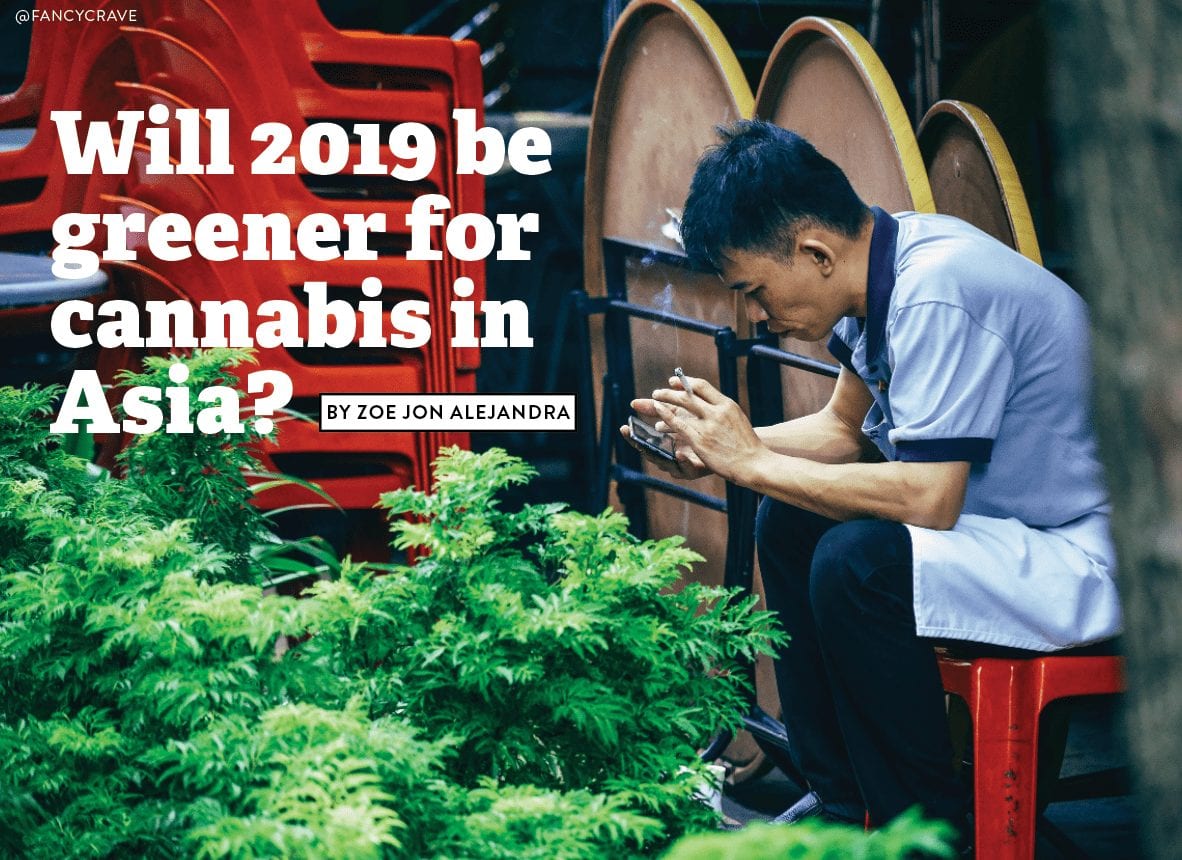
Cannabis as medicine has finally broken through in Asia. With several countries expressing interest in alternative medical remedies, it seems the fog of prejudice is finally lifting. Without a doubt, Asia’s history with herb goes back for millennia. Some governments are now beginning to reconsider the penalties associated with cannabis, which is resulting in more appropriate laws and regulations.
For example, Korea gave the green light to medical cannabis use on November 23, 2018. The focus was on hemp and CBD oil, neither of which has psychoactive effects. Historically, Korea has had some of the world’s toughest anti-drug laws. Artists like Shin Jung-Hyeon, Kim Kye-hoon and K-Pop sensation Park Jae-Sang (a.k.a PSY) have been slapped with heavy fines and jail time for using cannabis. Some have had their careers irreparably damaged. The approval of the legal medical cannabis law came as a surprise.
Another country came into the spotlight as well. Before Filipina Catriona Gray was crowned, her brief but poignant answer to the question of the legalization of cannabis wowed the judges as well as the audience. To quote her statement, “I’m for it being used in a medical use, but not so for recreational use. Because I think [people would argue], ‘What about alcohol and cigarettes?’ Well, everything is good but in moderation.” Her statement caught the ears of lawmakers, who almost immediately put in motion a discussion about legalizing medical cannabis in the country. By the middle of December 2018, The Philippine Star quoted Senate President Vicente Sotto III, “That is what is in the law already. It is allowed already. There is just a process they should know about.” Additionally, he cited Republic Act 9165, or the Comprehensive Dangerous Drugs Act.
Prayers were answered by the last week of January 2019 as the House of Representatives approved the bill for medical cannabis in the final reading. According to an article by CNN Philippines, the chamber approved what is now known as the Philippine Compassionate Medical Cannabis Act or House Bill 6517. This was the result of 163 affirmative votes with five against, and three abstentions. Treatment for epilepsy, cancer-related symptoms, and chronic pain are among the many that will benefit from this bill. The Philippine Drug Enforcement Agency is expected to work hand-in-hand with hospitals, which will be given proper accreditation. Medical Cannabis Compassionate Centers will soon be established providing easier access for qualified patients. Selling over the counter, is however not permitted. Cannabis will also not be allowed for smoking, according to Isabela 1st District Representative Rodolfo Albano, who is the main author. It means no cannabis use in its raw form. Former President and now House Speaker Gloria Macapagal-Arroyo is quoted in several news items admitting cannabis has helped her as an effective pain relief for her cervical spine condition. The biggest surprise, perhaps, is the all-out support of iron-fisted current President Rodrigo Roa Duterte, who expressed approval by stating that he is willing to sign the medical cannabis bill.
The Asian region has a rich history of cannabis-related culture and industry. At present, it looks like the stigma against cannabis is finally being lifted. This is a great departure from outdated beliefs that have plagued cannabis in Asian countries for years. South Korea and the Philippines have shattered conventions, which greatly improves the chances of erasing negativity against herb. It is high time for Asia to move forward in conducting proper medical research focused on the potentials of nature-based medicine. Synthetic drugs have taken their toll on patients all over the world, resulting in them turning to unapproved medical supplements and other similar forms of treatment.
We can only guess which country will be next. Thailand, Malaysia, India, Sri Lanka and Bhutan have voiced interest in the topic. In fact, in December 2018, Thailand became the first country in Southeast Asia to allow medical cannabis despite Bangkok having some of the heaviest penalties for illegal drug use. So far, 2019 has come in with a bang, which everyone hopes will signal a brighter future for the cannabis industry in Asia.



Leave a Reply